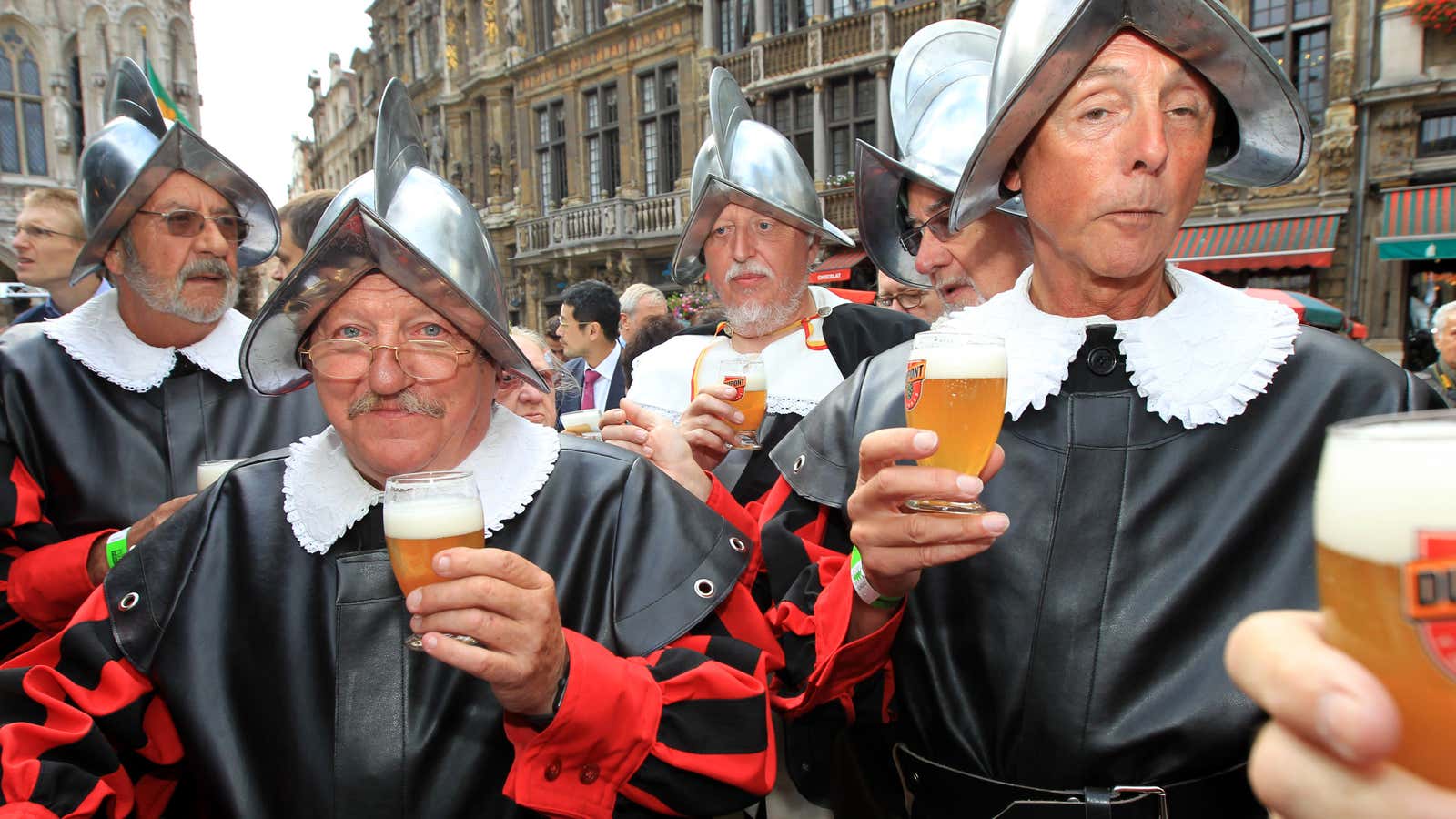Beer culture in Belgium, which produces over 1,500 varieties of the brew some by Trappist monks, is now officially a world treasure. UNESCO, the United Nations Educational, Scientific and Cultural Organisation, announced today that Belgium beer culture has been added to its list of “Intangible Cultural Heritage of Humanity.”
Beer has been added along with Nauryz (or Navruz, Nawrouz, Nevruz, Nooruz, Novruz, Nowrouz, Nowruz), the new year celebrated in several countries including Turkey, Iran and Pakistan; the Bangladeshi festival of Mangal Shobhajatra; China’s traditional division of the sun’s motion in 24 annual segments; and Cuba’s rumba.
The overall list is as eclectic as culture. This year alone 20 cultural elements have been added, including Korea’s Jeju Haenyeo (the women divers of Jeju island), Germany’s cooperatives, Georgia’s writing system and France’s Granville carnival. It takes two years for a new item, which must be nominated by one or several countries, to be added to the list. The fate of Neapolitan pizza, which Italy had nominated earlier this year, won’t be known for a while, though a rival of sorts, flatbread (its making, and sharing), was added earlier this year.
The full list, established in 2008, is complementary to the UNESCO’s list of World Heritage Sites, which was established in 1972. While the latter protects physical places, the former recognizes that traditions, foods, and cultural practices are as worthy of respect and preservation as landmarks. An in-depth dive into the list is like a journey through some of the world’s most amazing and unique practices, be it as specific as the manufacturing of cowbells (Portugal) or a coaxing ritual for camels (Mongolia), or as widely known as the Mediterranean diet or Argan-tree derived products (Morocco).
Wit is protected—in its Uzbek folk manifestation, called Askiya—and so is coffee culture, of both Arabic and Turkish variety.
What is curiously absent from the database is what dominates most of the world’s global culture today: No tradition or cultural element from the English-speaking western world (UK, US, Australia, Canada) has yet received recognition.




